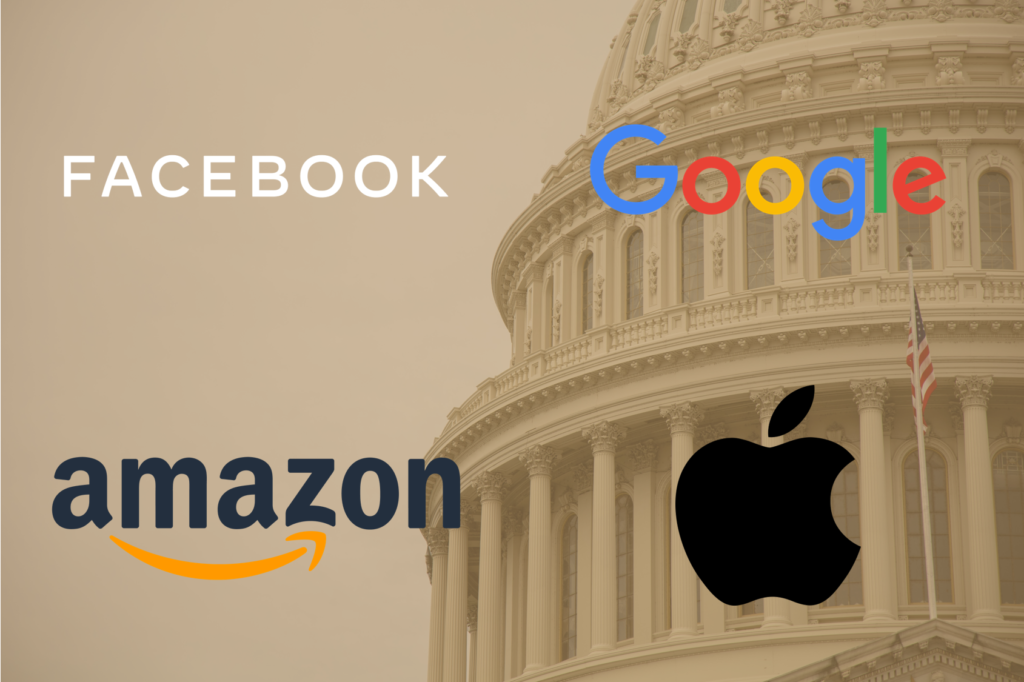In early October, Benedict Evans, a longtime technology market analyst, published a text about the end of the American Internet. He invoked a saying (he referred to as an old joke) that war is how Americans learn geography, and stated that a new way was coming now – namely, the regulation. However (un)serious this may sound, there may be some truth to it. In various parts of the world, there is more and more discussion about the digital market regulation, which will obviously apply to all entities operating in this area, but which will affect (and are created for) mainly large American technology companies (the so-called Big Tech).

In July 2020 British Competition and Markets Authority (CMA), the agency responsible for strengthening business competition and preventing as well as reducing anti-competitive activities, published a comprehensive report entitled “Online platforms and digital advertising”.
The document is a result of several months of analysis of the market position, practices and regulations of Facebook and Google on the British market. The agency researched how big a share of search and social media markets FB and Google have,
whether users have sufficient control over their data used by those platforms and whether the lack of transparency, conflicts of interest and the leveraging of market power undermine the competition in digital advertising.
Interestingly, they showed the conclusions of these analyses not only in a business context, but translated them into benefits or threats to consumers. The British regulator acknowledges that both Facebook and Google grew by discovering great insights and building products better than their competitors but their current scale makes it harder for other entities to enter the market. This constraints innovation and the appearance of new, valuable services that could make consumer life easier. The dominant market position makes the digital advertising more expensive and those costs are passed on to consumers. CMA recalls that the cost of digital advertising in 2019 amounted around 500 GBP per household (it is reflected in the prices of services and goods) and that it could be lower if the market was more competitive. The Office also raises the issue of insufficient control users have over their data and how it is used by platforms, and the method of monetization by advertisements, which may result in the fact that quickly spreading, fake content is rewarded, and this has an impact on the deterioration of the condition of the society.
The recommendation is the establishment of the Digital Market Unit (DMA), which would create the enforceable code of conduct and a number of pro-competitive interventions that would apply to platforms with a strategic market status.
The report shares a number of proposed interventions: restricting Google’s ability to secure default positions in operating systems, browsers or on devices, requiring Google to prove click and query data to third-party search engines, mandating Facebook’s interoperability (FB’s services would have to be compatible with other providers), implementing ownership and operational separations on the digital advertising market (so Google would not have the dominant position on every step of the supply chain).
The document was accompanied by a clear and firm call from the government to introduce regulations limiting the market position of Facebook and Google.
A similar report was published in early October by Democrats who have a majority in the House Judiciary subcommittee in the US Congress.
The 450-page document is the result of a 16-month investigation, during which the subcommittee interviewed leaders of the largest organizations, smaller market players and analyzed over a million documents. The report can be considered as a form of an indictment against GAFA (Google, Amazon, Facebook, Apple). Each of the companies received a list of charges related to their violation of fair competition principles and abuse of the monopoly position. Similarly to the CMA document, the report of the Americans contains a number of recommendations (although more for business than strictly focused on the advertising market): imposing structural separations and prohibiting entering adjacent business lines (which may mean, for example, separating Google from YouTube or Facebook from Instagram), a change in the approach to consenting to mergers and acquisitions (assuming by default that such activity will harm the competition, entities applying for consent will have to prove otherwise), preventing platforms from their own service preference models, ordering interoperability with competing services and the possibility of transferring users data (at their request), and many proposals regarding the operation of offices and the content of the law.
The report has received wide coverage in the tech industry and business media, but most emphasize that sudden changes should not be expected.
Rather, it is a very clear demonstration of the direction that politicians and lawmakers in the United States will follow in the coming years. Of course, the result of the November elections will also have a significant role here, because the Americans will elect not only the President, but also the members of the House of Representatives and part of the Senate.
The European Union is also getting closer and closer to regulating GAFA’s activities.
At the end of September, the Financial Times published the information from the initial draft of the Digital Services Act, the official version of which should be known at the end of the year. The working document includes articles prohibiting the collection of data and their commercial use by platforms, unless the data is made available to other entities operating or wishing to operate in the same area. It is also forbidden to use data that has been collected for advertising purposes from other entities, for purposes other than advertising (e.g. improving own services). As in previous reports, the draft prepared by the EU includes a prohibition of preferential treatment of own services, a prohibition of pre-installing applications on laptops or smartphones.
GAFA platforms are referred to as “gate-keepers” in the document, entities so large that they prevent others from entering the market.
We will not, of course, predict the future or predict how each of these attempts to regulate Big Tech will develop. It is clear, however, that after many years of admiring American platforms for their innovation, creating convenient and helpful services and products for consumers, and making the access to knowledge and information easier, regulators noticed that the situation got somewhat out of control quietly. The scale that GAFA companies have achieved is already so big, and they have created so many barriers in their areas that it is very difficult for smaller entities to develop.
We do not know the outcome of these multi-source actions, but we can certainly prepare for months of political and business battles.
https://www.ben-evans.com/benedictevans/2020/10/3/the-end-of-the-american-internet

